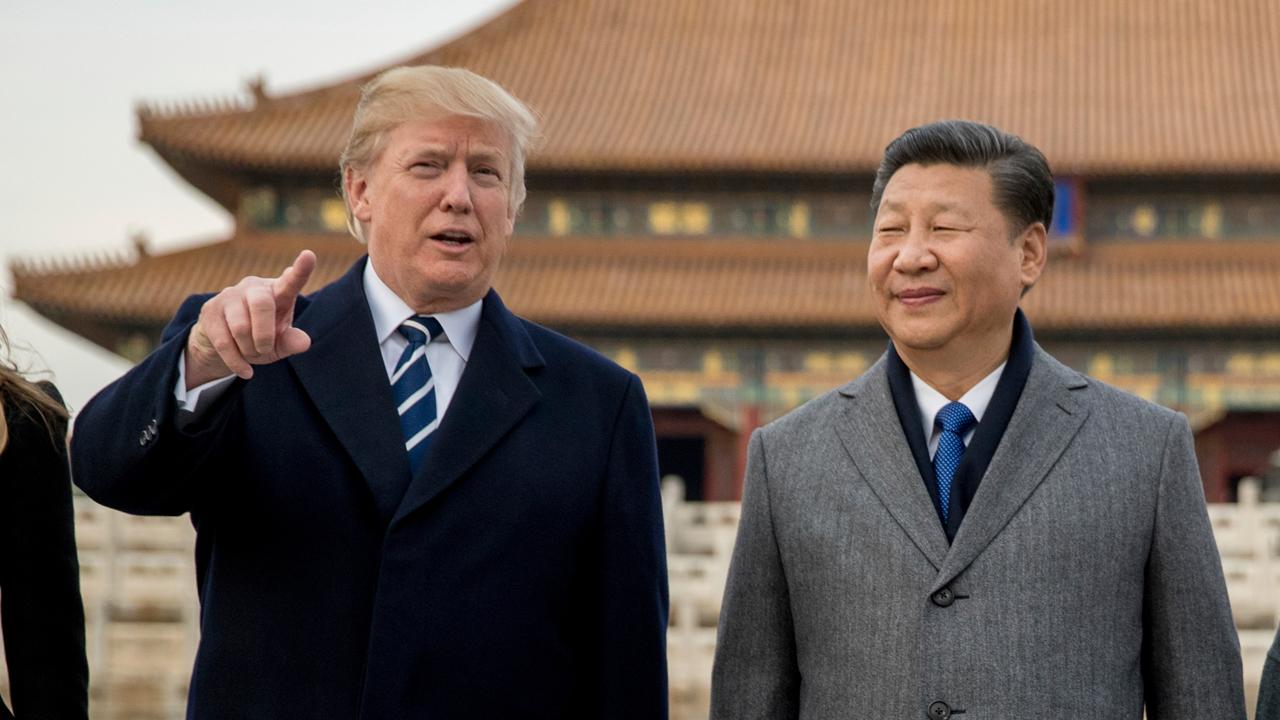Trump asks Pentagon to find new rare earth sources
President Trump on Monday ordered the Department of Defense to find better ways to procure rare earth minerals – which are a crucial component in producing weapons, electronics and other goods – over fears that China could weaponize its dominance in the sector.
Trump said the U.S. does not have the necessary capacity to make samarium cobalt rare earth permanent magnets, according to Reuters, which are commonly found in precision-guided missiles, smart bombs and military jets. They are resistant to corrosion and can withstand high temperatures.
The order, which came in a letter to congressional leaders, falls under the Defense Production Act of 1950, a broad law that authorizes the president to allocate materials and other services to promote and support national defense.
“These proposed initiatives are essential to the national defense,” Trump said in a letter to Rep. Maxine Waters, D-Calif., the chairwoman of the House Committee on Financial Services, and to Sen. Mike Crapo, R-Idaho, the chairman of the Senate Committee on Banking, Housing and Urban Affairs.
Earlier this year, China signaled that it might target rare earths in the year-long trade war with the U.S. China’s top economic planning agency, in May, did not rule out the possibility of the government using rare earths as a bargaining chip in the U.S.-China trade dispute, according to the South China Morning Post.
A recent editorial published by the Global Times, a state-run newspaper, warned that "Washington must not push China too hard" if it wants to retain access to rare earths.
“The excessive reliance of the US on China's rare earths is the fundamental reason why Washington is under pressure," the editorial said. "China is in no hurry to ban rare-earths exports,” notes the Global Times, “and the best choice is to maintain a deterrent force on the US in the long run by using rare earths as leverage.”
Rare earths, a group of 17 metals that have been deemed critical by the U.S. Geological Survey for multiple sectors in the U.S., including national defense, are used to produce a number of goods, including smartphones, cameras and nuclear rods. While not actually rare, China accounts for more than 90 percent of global production, according to the U.S. Geological Survey, even though it only controls about one-third of the world’s rare earth deposits.
CLICK HERE TO GET THE FOX BUSINESS APP
Sen. Marco Rubio, R-Fla., unveiled a proposal at the beginning of the month also aimed at curtailing China's rare earth monopoly. Under his plan, a privately funded operated and managed cooperative would be established and tasked with the creation of a fully integrated domestic rare earth value chain. The cooperative would be exempt from antitrust laws.
“Continued U.S. dependence on China for the mining and processing of rare earths and the manufacture of those metals into useful products is untenable,” Rubio said. “It threatens our national security, limits our economic productivity, and robs working-class Americans of future opportunities for dignified work.”




















